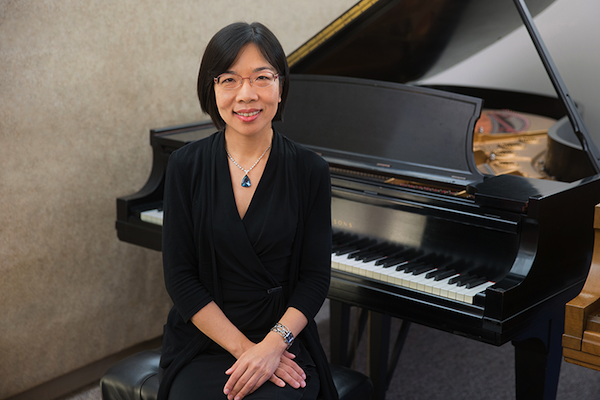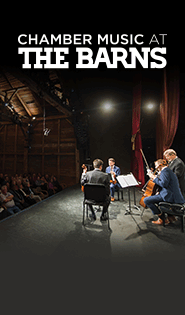Pianist Liu offers a thoughtful program of American music with a lost work rediscovered

Solungga Liu performed music of Charles Tomlinson Griffes and Amy Beach Saturday at the Library of Congress.
One of the greatest pleasures of taking in concerts at the Library of Congress is experiencing live performances of rarely heard music from its vast repository of manuscripts.
At the library’s Coolidge Auditorium Saturday afternoon, pianist Solungga Liu made a convincing case for the music of two overlooked American composers – Charles Tomlinson Griffes and Amy Beach – with a recital of thoughtfully programmed works, each displaying the respective writers’ hallmarks and all of it lovingly and joyfully performed.
Liu, a champion of Griffes who died in 1920 at the age of 35, selected pieces that would give listeners an appreciation of the breadth of the composer’s invention during his short-lived career. The assortment included selections from his lesser-known works, Three Tone-Pictures, Op. 5, Fantasy Pieces, Op. 6, Roman Sketches, Op. 7, as well as his magnum opus, The Pleasure-Dome of Kubla Khan.
Throughout the all-Griffes first half, Liu approached the scores with an authoritative but deferential air, performing with rhythmic precision, expression and a finely calibrated sense of balance between all of the moving parts. That attention to detail yielded layers of intriguing music, such as the calm melodic serenity in “The Lake at Evening” (from Op. 5) over an omnipresent and slightly unsettling bass ostinato and the cascading chromatics undergirding the strutting sounds of “The White Peacock” (Op. 7) Yet that concentration also evoked images and scenes, with Liu drawing out the Steinway’s rippling sonorities to mimic the whimsical sounds of “The Night Winds” (Op. 5 )and the alternating chords and arpeggios in “Clouds” (Op. 7), which created the feel of a chilly autumn day.
The lilting rhythms of the “Barcarolle” from the Fantasy Pieces inspired Liu to ring out the piano’s bass tonalities while maintaining a delicate cantabile melody in the upper voice. Though sometimes covered up by heavy pedaling, the work’s intriguing harmonics still came through. Liu played up the jazz-influenced harmonies and syncopated rhythms of the “Notturno” and let up on the pedal to give the “Scherzo” lighter but brighter tones.
Once believed to be lost, Griffes’s piano transcription of Claude Debussy’s “Les parfums de la nuit” from the “Iberia” section of the composer’s Images was recently rediscovered in the Library of Congress’s collection. In this belated world premiere, the piece retained an orchestral spectrum of colors in Liu’s hands. Griffes’s treatment of Debussy’s motifs and passages, often came across as a fascinating, deconstruction of the orchestral version – a neat mélange of ideas in bite-size morsels often segregated in specific ranges of the keyboard. Liu served as the knowing conductor—the glue that held it all together while still allowing the transcription to shine through on its own merits.
In her introductory remarks to The Pleasure-Dome of Kubla Khan, Liu revealed that her first name means “rainbow” in Mongolian and that she is a direct descendent of Genghis Khan. From the opening bass octaves of the work to the twirling pentatonic melodies and the mixture of chords in between, Liu made the work a personification of her name – prismatic, glowing, and even cinematic in scope.
If Liu’s handling of the Griffes works was evocative and glittering, then her treatment of the two Beach compositions that opened her second half was operatic.
Liu’s rendition of the Ballad was moving and passionate, with the melodies pouring forth like an aria. Her supple approach at the keyboard created warm, orchestral-like support for the melodic lines. That artistry continued through “Dreaming” from Beach’s Four Sketches, where Liu also brought a bit of suspense into play in transitional sections. This listener wished there had been more Beach on the program, but the two selections served as a fitting sesquicentennial tribute to the composer, who was born in 1867.
Liu capped her performance with Cesar Franck’s Prelude, Choral et Fugue, which gave the Bowling Green State associate professor a chance to showcase some dramatics at the keyboard and a wider spectrum of dynamics and darker hues. The pianist played with great passion, and at its conclusion, instead of the triumphant smile she bore at the end of all the other sets, Liu looked emotionally and physically spent as she took her bow. But when she came back out for her curtain call, she appeared refreshed and sat back down on the bench to play the middle movement of a C.P.E. Bach sonata as an encore.




